When you hear that trading cryptocurrency in Bangladesh can land you in jail for 12 years, it sounds like a hard stop. No gray area. No exceptions. But the truth is more complicated - and far more confusing - than the headlines suggest.
Where Did the 12-Year Figure Come From?
The number 12 years keeps popping up in news articles, social media posts, and even WhatsApp forwards. But it doesn’t come from any law that specifically says, "Trading Bitcoin = 12 years in prison."
It started with a 2014 warning from Bangladesh Bank, the country’s central bank. In a public notice, officials said Bitcoin transactions were illegal and could lead to prosecution under the Money Laundering Prevention Act 2012. That law says money laundering carries a prison term of 1 to 10 years. But some Bangladesh Bank officials, speaking to reporters, added that if other laws like the Anti-Terrorism Act 2009 were also triggered, the sentence could stretch to 12 years. That’s where the number came from - not from statute, but from speculation.
Here’s the catch: Bangladesh Bank’s notices are warnings, not laws. They’re not passed by Parliament. They don’t create new crimes. They say, "If you use crypto to break existing laws, you’ll be punished under those laws." That’s like saying, "Using cash to buy illegal drugs is illegal" - it’s not banning cash, it’s enforcing drug laws.
What Laws Actually Apply?
Three main laws are used to justify crackdowns on crypto in Bangladesh:
- Foreign Exchange Regulation Act 1947 - All foreign currency transactions must go through authorized banks. Sending money overseas to buy Bitcoin? That’s a violation. First offense: up to 2 years. Repeat: up to 5 years.
- Money Laundering Prevention Act 2012 - If crypto is used to hide illegal money, you could face 1 to 10 years. This is the law most often cited.
- Anti-Terrorism Act 2009 - Added to the warning in 2017. Only applies if crypto is linked to terrorist financing - a very high bar.
There’s no law that says "owning Bitcoin is a crime." But if you use it to move money outside the system - especially through unregulated P2P platforms - you’re stepping on existing legal landmines.
Is Crypto Actually Banned? The Legal Gray Zone
Legal experts at Mahbub & Company have been clear since 2021: Bangladesh hasn’t banned cryptocurrency. It’s banned the way people use it - outside the banking system.
Think of it like this: You can own a car. But if you use it to run over someone, you go to jail. You don’t get jailed just for owning the car. Same with crypto. If you buy Bitcoin to pay for drugs, launder money, or evade taxes - you’re breaking the law. If you buy it as an investment and never touch it? Legally, no one’s come forward to say that’s a crime.
And yet, banks are ordered not to process crypto-related payments. Exchanges are blocked. ATM withdrawals linked to crypto wallets are frozen. So while the law doesn’t say "crypto is illegal," the system makes it nearly impossible to use without triggering a violation.
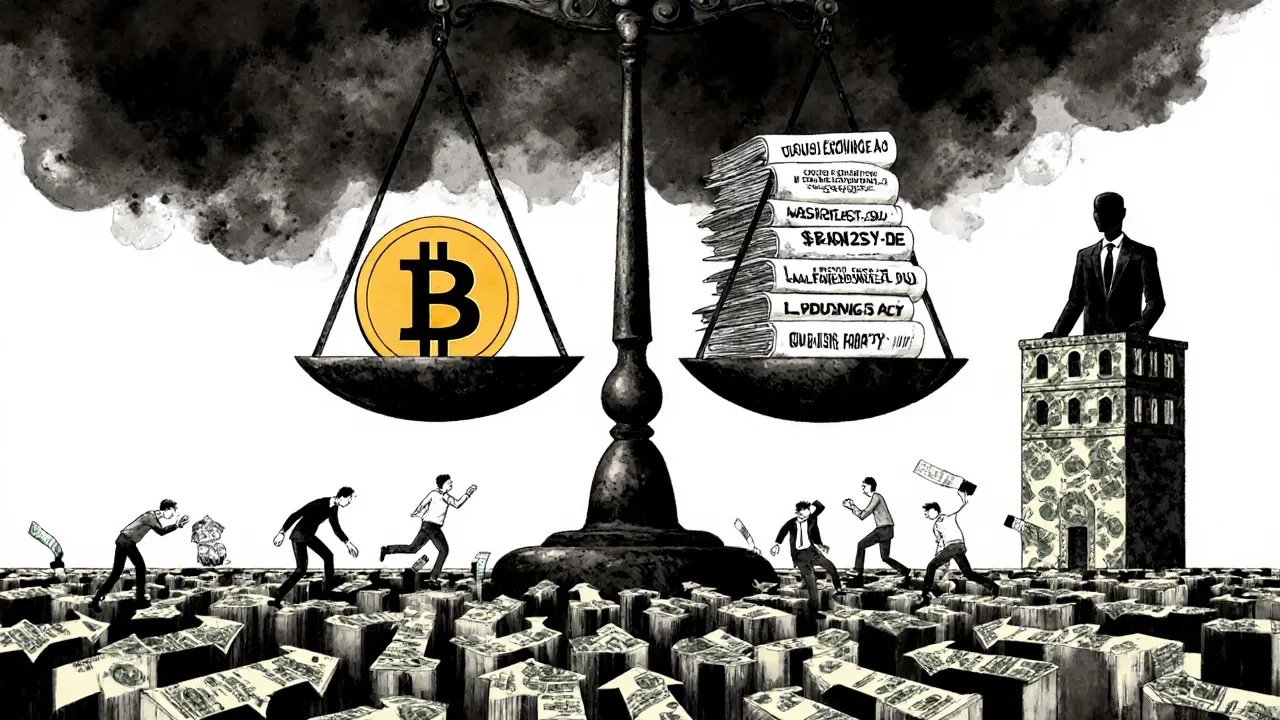
Who Gets Arrested? Real Cases in 2024
Despite the scary headlines, no one has been sentenced to 12 years for simply trading crypto in Bangladesh.
In 2024, Bangladesh’s Cyber Security Division reported 17 crypto-related cases. None involved a single individual being jailed for buying Ethereum or selling Bitcoin on Binance. Most cases targeted large-scale operators - people running unlicensed exchanges, moving millions in crypto to offshore wallets, or using crypto to launder money from fraud.
According to the Anti-Money Laundering Department’s 2022 report, only 37 digital financial crime cases were filed nationwide. Not one resulted in a 10- or 12-year sentence. The average sentence for financial crimes in Bangladesh is under 3 years.
So why does the 12-year myth persist? Because fear sells. International media picked up the central bank’s offhand comment and turned it into a headline: "Bangladesh Bans Crypto - 12-Year Jail Term." The truth? Enforcement is selective. The law is vague. And the punishment rarely matches the scare.
People Are Still Trading - Even With the Risk
Here’s the irony: Crypto use in Bangladesh is growing.
Chainalysis reported a 206% jump in crypto transaction volume between mid-2021 and mid-2022. By December 2024, an estimated 2.1 million Bangladeshis - about 1.2% of the population - owned some form of cryptocurrency. Most use P2P platforms like Binance Peer-to-Peer, where users trade directly with each other using local bank transfers.
Why risk it? For many, crypto is a lifeline. Inflation is high. The taka is unstable. Remittances from overseas workers are slow and expensive. Crypto offers faster, cheaper alternatives. A worker in Malaysia can send $500 to his family in Dhaka in minutes - no bank fees, no middlemen, no delays.
Even Bangladesh Bank knows this. In 2020, the government released a National Blockchain Strategy - exploring how blockchain tech could improve land records, voting, and supply chains. That’s not the move of a country that wants to erase digital finance. It’s the move of a country trying to control it.

The Real Danger: Confusion and Overreach
The biggest threat isn’t the law. It’s the noise.
Bank tellers warn customers not to send money to crypto exchanges. Police arrest people for using crypto apps. Courts don’t have clear guidelines. So when someone gets caught, judges often default to the harshest possible interpretation - just to be safe.
One man in Sylhet was arrested in 2023 after sending $3,000 to a Binance wallet. He wasn’t laundering money. He just wanted to buy Bitcoin as a hedge against inflation. He spent 47 days in jail before being released without charge. His case never went to trial.
This is the real cost: fear. People don’t know what’s legal. They’re afraid to ask. They hide their wallets. They don’t report income. And when something goes wrong - a scam, a hacked exchange, a frozen account - there’s no legal recourse.
What Should You Do If You’re in Bangladesh?
If you’re a resident:
- Don’t use local banks to send money to crypto exchanges. That’s the fastest way to trigger a red flag.
- Don’t trade large amounts. Small, occasional purchases are less likely to draw attention.
- Keep records. If you’re buying crypto for savings, not speculation, document why.
- Don’t assume you’re safe just because others are doing it. Enforcement is random - not systematic.
If you’re outside Bangladesh and sending money to someone there:
- Use official remittance channels. They’re slower, but legal.
- Don’t send crypto directly to someone’s wallet unless you’re prepared for them to face legal risk.
What’s Next for Bangladesh?
India went from banning crypto to taxing it. Thailand is rolling out a central bank digital currency while allowing private crypto under license. Bangladesh could follow.
The government has the tools to regulate - not ban. It could require exchanges to register. It could tax crypto gains. It could enforce KYC rules. But right now, it’s stuck in a middle ground: too scared to allow it, too weak to stop it.
Until then, the 12-year threat remains a warning sign - not a sentence. But in a system where the rules are unclear, even a warning can feel like a trap.
Is it illegal to own Bitcoin in Bangladesh?
No, owning Bitcoin or any cryptocurrency is not explicitly illegal in Bangladesh. The law doesn’t say you can’t hold it. But using it to send money abroad, trade through unregulated platforms, or avoid banking rules can trigger violations under the Foreign Exchange Regulation Act or Money Laundering Prevention Act. Ownership isn’t the issue - how you use it is.
Has anyone actually been jailed for 12 years for crypto trading?
No. As of 2025, there are no publicly documented cases of anyone receiving a 12-year sentence for simply trading cryptocurrency. The 12-year figure comes from a misinterpretation of existing laws. Most crypto-related arrests involve large-scale operators or money laundering, not individual traders. Sentences, when given, are typically under 5 years.
Can I use Binance or other crypto exchanges in Bangladesh?
You can access Binance and similar platforms, but Bangladesh Bank has ordered banks to block transactions linked to them. Many users still trade via peer-to-peer (P2P) methods - paying cash or bank transfers directly to sellers. This avoids bank detection but increases legal risk if the transaction is flagged as money laundering. There’s no legal protection if you’re scammed.
Why does Bangladesh Bank warn against crypto if it’s not banned?
Bangladesh Bank doesn’t have the legal authority to ban crypto outright. Instead, it uses warnings to enforce existing laws - like the Foreign Exchange Regulation Act - which require all foreign currency transactions to go through licensed banks. Crypto bypasses that system, so the bank treats it as a violation of those rules. The warnings are a workaround to control something they can’t legally prohibit.
Is crypto trading taxed in Bangladesh?
No, there is no official tax on crypto gains in Bangladesh. The government hasn’t created a legal framework to recognize or tax cryptocurrency income. This means traders don’t report profits, and the state doesn’t collect taxes - which adds to the regulatory gray zone. Some experts predict taxation could come next, as it did in India.
Can I send crypto to someone in Bangladesh from abroad?
Technically, yes - but the recipient could face legal trouble if they convert it to taka through unregulated channels. If they use a P2P platform or cash out via an unlicensed exchange, they risk being accused of violating foreign exchange rules. The safest way to send money is through official remittance services like Western Union or MoneyGram.
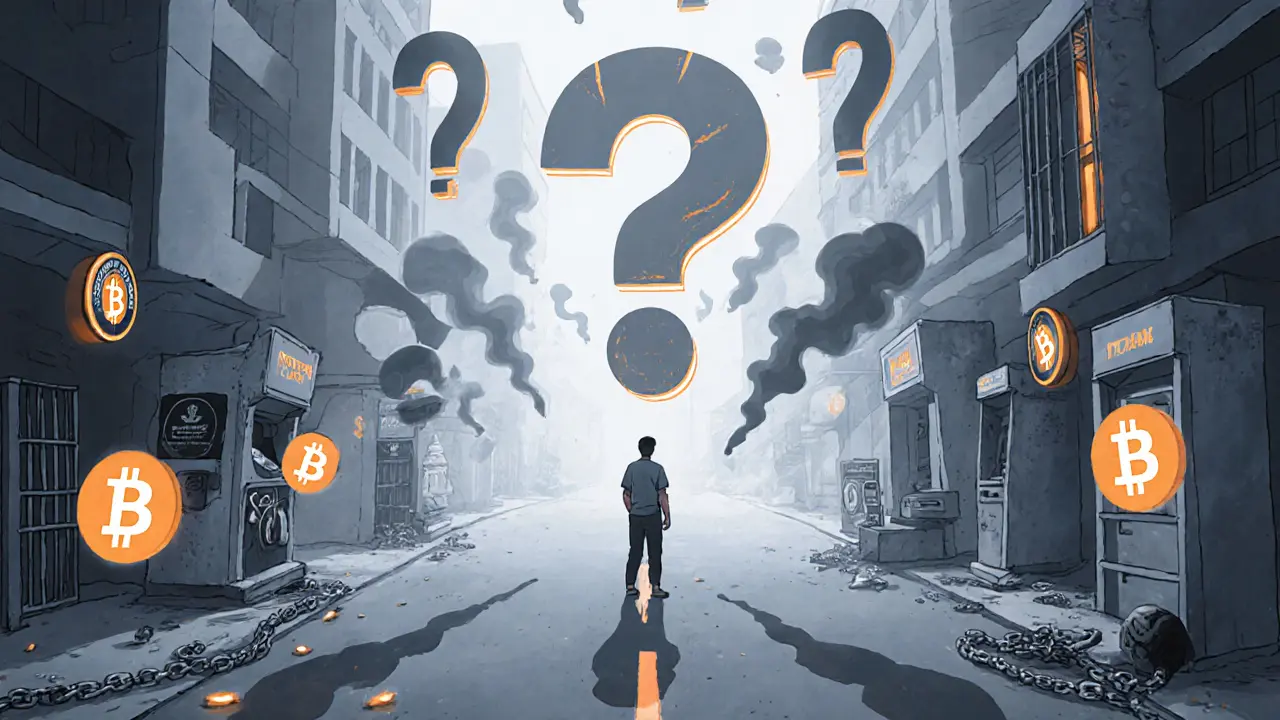
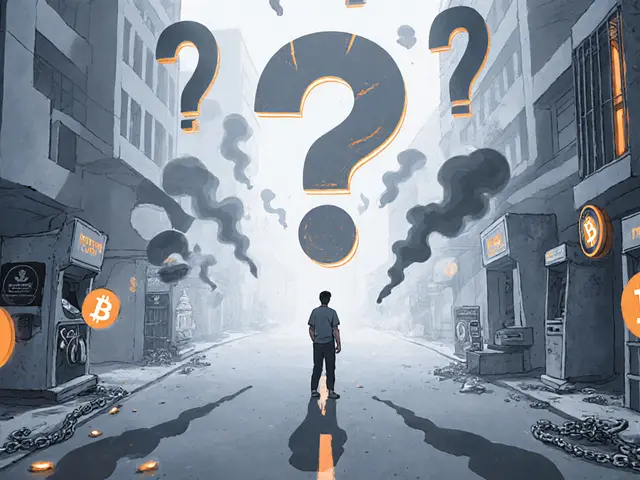

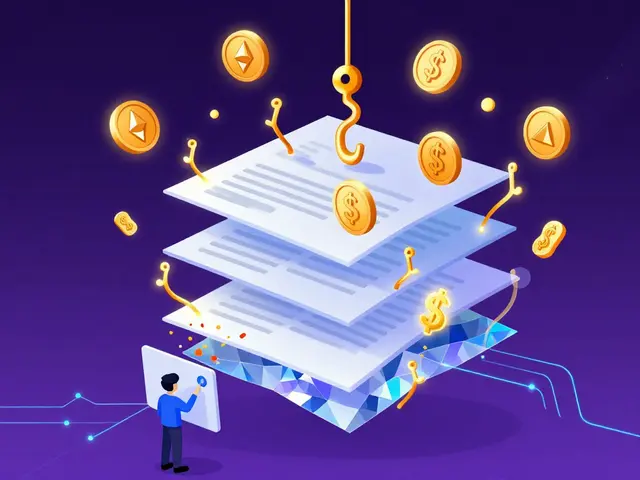

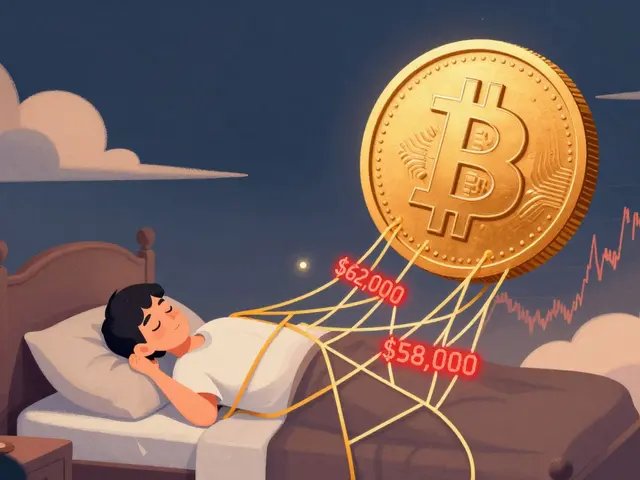
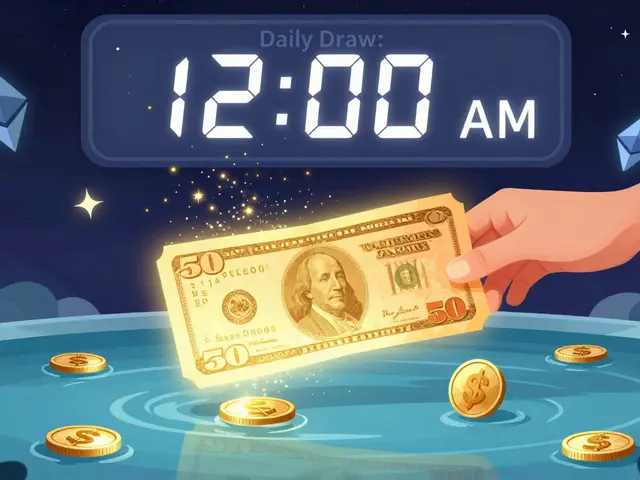
Susan Dugan
November 29, 2025 AT 13:50Wow, this is such a refreshing take - I’ve seen so many fear-mongering headlines about crypto in Bangladesh, but this breaks it down like a legal TED Talk. The car analogy? Chef’s kiss. 🙌 People are scared because the rules are whispered, not written. And honestly, that’s scarier than any law.
SARE Homes
December 1, 2025 AT 12:20THIS IS WHY PEOPLE ARE STUPID!!! You can't just 'own' crypto and think you're safe??? Of course it's illegal!!! The bank said NO!!! Why do you people need to twist the law?!?!?! 12 YEARS IS THE RULE!!! YOU'RE JUST LYING TO FEEL BETTER ABOUT YOUR RISKY BEHAVIOR!!!
Grace Zelda
December 2, 2025 AT 22:00Okay but like… if the government’s got a blockchain strategy but also bans bank transfers to exchanges… is that like… a power move? Or just chaos? 🤔 I feel like Bangladesh is stuck between ‘we need innovation’ and ‘we need control’ - and the people are the ones getting tangled in the wires. Also, 2.1 million people using crypto? That’s not a glitch. That’s a demand signal.
Sam Daily
December 3, 2025 AT 22:57Man, I love how this breaks it down without the panic. I’ve got cousins in Dhaka who use Binance P2P to get cash from their brothers in Malaysia - no fees, no 3-day wait. They’re not laundering, they’re just surviving. 🫡 The real crime is making people choose between family and the law. Also, emoji for the win: 💸➡️📱
Kristi Malicsi
December 4, 2025 AT 22:31Michael Fitzgibbon
December 6, 2025 AT 03:08I think the real tragedy here isn’t the law - it’s the silence. No one knows what’s allowed because no one’s been clear. So people hide. They don’t ask questions. They don’t keep receipts. And when something goes wrong - a scam, a freeze, a mistaken arrest - they’re alone. That’s not justice. That’s fear wrapped in bureaucracy. I hope someone in the system reads this and says, ‘We can do better.’
Komal Choudhary
December 7, 2025 AT 12:17OMG I just saw this and I’m like 😱 my friend in Dhaka just got arrested last month for buying ETH!! He’s in jail now!! Why is everyone pretending it’s not dangerous?? I mean, if the bank says no then it’s NO!! Why are you guys making it sound like it’s a game??
Tina Detelj
December 8, 2025 AT 23:39Let’s be real - this isn’t about crypto. It’s about control. The government doesn’t want people bypassing the banking system because then they lose power, lose taxes, lose visibility. They’re not scared of Bitcoin - they’re scared of decentralized trust. And the 12-year myth? It’s a psychological weapon. It keeps people quiet. It keeps them scared. It keeps them compliant. And the worst part? It’s working.